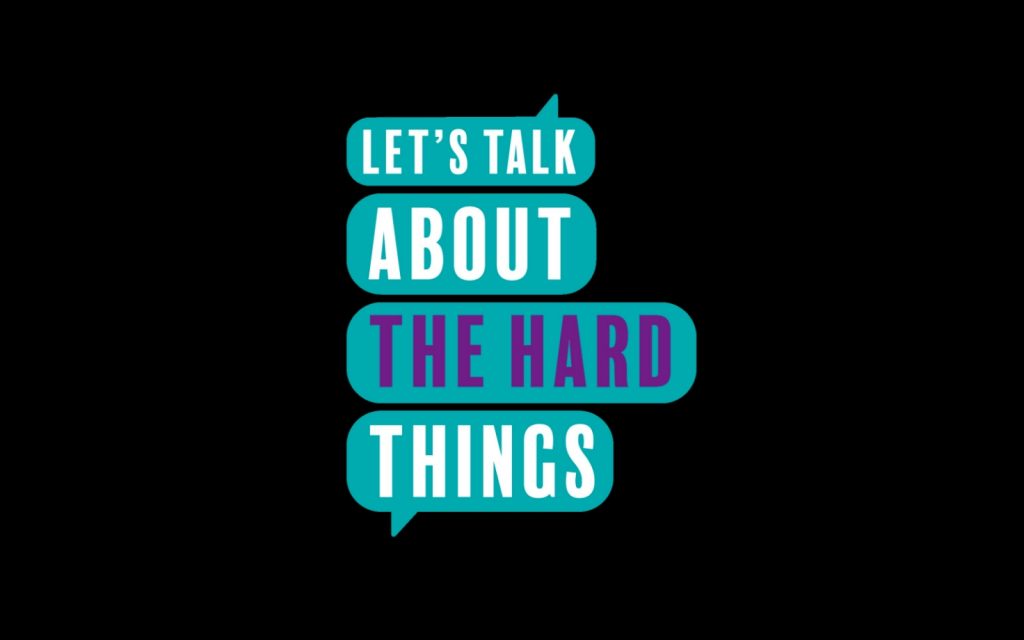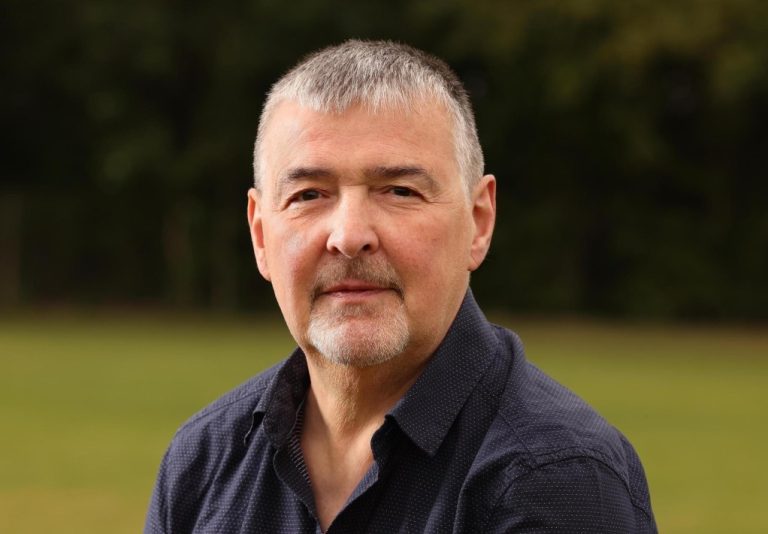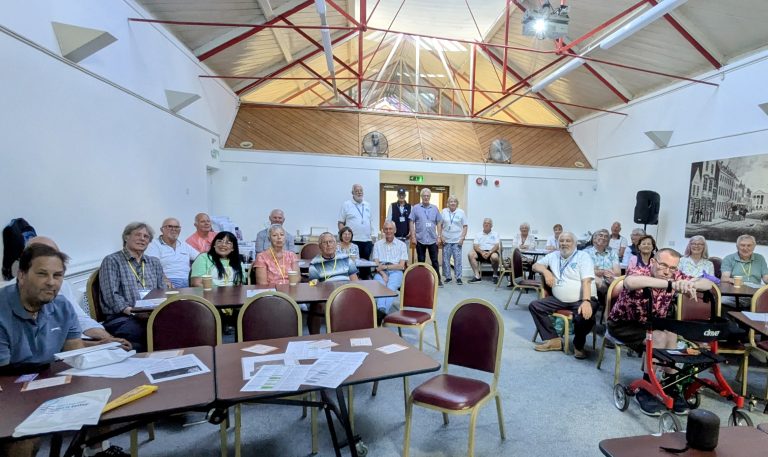New campaign launches to break down taboos around prostate cancer treatment side effects

http://www.pcr.org.uk/hard-things
- Prostate cancer is the most diagnosed cancer in the UK, with 57,192 men diagnosed in 2019 —equating to 1 man every 9 minutes.[i]
- New research shows 86% of men receiving treatment for prostate cancer experienced erectile dysfunction, and 79% suffered a loss of libido. However, only 1% of men surveyed felt most comfortable talking about side effects and mental health with their friends.[ii]
- Prostate cancer charities encourage patients to have conversations and not to suffer in silence.
SLOUGH, UK – 26 MAY 2021 – Ipsen Ltd., in partnership with Prostate Cancer Research and Tackle Prostate Cancer, is launching a new campaign, ‘Let’s Talk About the Hard Things’ to break down the taboos surrounding the side effects of prostate cancer treatment and encourage men to talk about their experiences with friends, family and healthcare professionals.
New research, commissioned by Ipsen, surveyed over 350 men with prostate cancer and found the following:ii
- Erectile dysfunction is one of the most common side effects, affecting 86% of men, followed by loss of libido (79%). Of those who experienced a loss of libido, almost half (42%) said their sex drive had “completely diminished” as a result.
- Almost three quarters (73%) of those surveyed suffer with incontinence, with 61% saying it affected their quality of life.
- These side effects can lead to a loss of confidence and feeling emasculated, and over a quarter of men (26%) said changes associated with their physicality have directly affected their mental health.
- Despite this, men feel uncomfortable talking about their side effects and mental health to the people they have the closest personal relationships to, with only 2% feeling most comfortable discussing the topic with family and even fewer (1%) with friends.
- Key reasons for avoiding conversation included: feeling others would have a lack of understanding; peer pressure to appear to have a healthy sex life and / or health in general; and feeling as though the problem is ‘left for you to sort out yourself.’
David James, Head of Patient Projects at Prostate Cancer Research, comments: “This research is an important reminder of the toll that prostate cancer can have on an individual’s physical and mental health. We want everyone to feel able to speak about the effects of their treatment without fear of judgement. We all have a part to play in normalising these discussions and banishing these taboos. It also emphasises how important ongoing research is in making vital advances in the treatment and care of prostate cancer, informed by the lived experiences of the people it affects, ensuring fewer side effects and better quality of life – it is only through research that we can achieve these goals.”
Ken Mastris, Chair at Tackle Prostate Cancer, comments: “From my own experience of living with prostate cancer, and the many conversations I have had at my support group, I know that many men undergoing treatment for prostate cancer experience unwanted side effects, which can affect their sex life and the way we feel about ourselves. These side effects can be damaging to mental health, but talking to someone – be that a partner, support group, friend, or a healthcare professional – can help to relieve some of the embarrassment and make the experience less isolating. I know I found, and many men find these conversations difficult to have, which is why this campaign aims to help break down the taboos around ‘hard topics’ and help more people open up.”
The research also found that two thirds (69%) of men feel speaking to other men living with prostate cancer, or having their friends and family understand how they feel, would help them discuss some of the ‘hard’ topics more openly.ii A new series of powerful videos, featuring a diverse range of men, has been released for the campaign launch, each showcasing a different pairing discussing their experiences of prostate cancer and the side effects of their treatment.
Dr Hilary Jones, TV doctor, comments: “I want to reassure anyone with prostate cancer that healthcare professionals are here to help: no topic is off limits – we’ve heard it all before! Nearly one third of men (31%) surveyed said they were not confident that their healthcare professional provided enough information about the specific side effects associated with the therapy they’d been prescribed. While doctors may need to do more, I’d also encourage patients to ask questions and use the time with their consultant to find out as much as possible.”
Prostate cancer treatment can cause side effects that are embarrassing and difficult to share, but by talking with partners, family, friends and your healthcare professional, it can be easier to cope with them. Visit www.pcr.org.uk/hard-things to watch the ‘Let’s Talk About the Hard Things’ videos and find out where you can seek support.
For anyone with prostate cancer issue they’d like to talk about, contact Tackle Prostate Cancer by calling its free National Helpline on 0800 035 5302 or emailing [email protected].
Notes to editors
Additional spokespeople quotes
- Manjinder Bains, Medical Director at Ipsen, comments “Ipsen is proud to be supporting such a pivotal and bold campaign about prostate cancer treatment. We’ve been in the field for over 30 years and are always looking for new ways to connect with and help the prostate cancer community, beyond our medicines. Last year, we worked with groups at all scales to understand the reality of living with prostate cancer and together have identified that the particular challenge of talking about taboo topics associated with side effects of treatment is one we simply can’t ignore. Working with two national support groups, Prostate Cancer Research and Tackle Prostate Cancer, we hope the message of this campaign will reach, empower and help as many patients as possible.”
About ‘Let’s Talk About the Hard Things’
- The ‘Let’s Talk About the Hard Things’ campaign is informed by findings from a survey of 361 men with prostate cancer, which was conducted between 15th February and 15th March 2021. The survey was commissioned by Ipsen, who have a medicine commercialised for men with prostate cancer. The purpose of this research was to understand and gain insight into some of the issues and ‘taboo’ topics associated with living with prostate cancer, specifically the side effects that can be caused from certain treatments, such as hormone therapy treatment.
- Prostate cancer is the most common cancer for males in the UK. It is also the second most common cause of cancer death, accounting for 13% of all cancer deaths in males in the UK in 2018.[iii]
- Hormone therapy is a form of treatment that targets the sex hormone testosterone. It works by either reducing the production of this hormone, or stopping the hormone from reaching cancer cells, which usually require testosterone to grow. Hormone therapy on its own won’t cure prostate cancer, but it can be used to slow the progression of the cancer and relieve any symptoms.[iv] This form of treatment can cause a range of side effects such as less desire for sex (low libido), erectile dysfunction, growth of breast tissue, loss of muscle mass, fatigue and changes in mood / behaviour.[v]
- Radical treatments (surgery, radiotherapy) can also cause a range of side effects for men with prostate cancer. This could include, for example, incontinence, problems with sexual function following (radical prostatectomy) and problems with bowel function, fatigue and sexual function following radiotherapy or brachytherapy.iv
[i] Prostate Cancer UK. Prostate cancer becomes most commonly diagnosed cancer in UK, but research is at a standstill. Available here. Last accessed: May 2021.
[ii] Date on File TRI-UK-004570
[iii] Cancer Research UK. Prostate cancer statistics. Available here. Last accessed: May 2021.
[iv] NHS. Treatment for prostate cancer. Available here. Last accessed: May 2021.
[v] Cancer Research UK. What is hormone therapy? Available here. Last accessed: May 2021.



